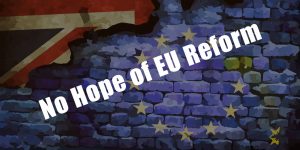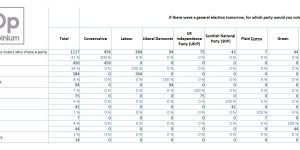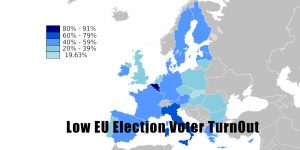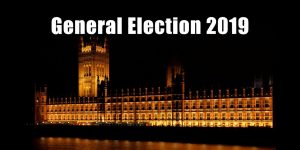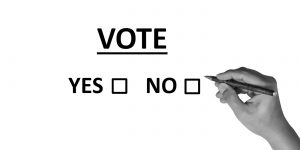The United Kingdom’s Exit from and new Partnership with the European Union White Paper
Annex B – UK/Ireland
Overview
B.1 Ireland is our closest neighbour, and the only country with which the UK shares a land border. Our countries are intertwined through our shared history, culture and geography, and through our shared commitment to the Belfast Agreement, that provides the cornerstone to political stability in Northern Ireland.
B.2 The UK Prime Minister and the Taoiseach have traditionally held an annual summit to take stock of progress and Permanent Secretaries and Secretaries-General from the UK and Ireland meet every autumn to discuss progress and maintain momentum.
B.3 The Government is determined to protect and build on the strong historic ties between the UK and Ireland as the UK prepares to leave the EU.
Northern Ireland
B.4 Nowhere in the UK is our relationship with Ireland more important than in Northern Ireland.
B.5 This Government’s policy is to see a secure, stable and prosperous Northern Ireland, within a strong UK. We are committed to the principle of consent enshrined in the Belfast Agreement, which makes clear that Northern Ireland’s constitutional position is a matter for the people of Northern Ireland to determine. However, our clearly-stated preference is to retain Northern Ireland’s current constitutional position: as part of the UK, but with strong links to Ireland. Maintaining political stability in Northern Ireland is a core part of that policy. This, in turn, is dependent on a number of elements, including:
- a growing economy, which relies among other things on practical cross-border linkages;
- an effective security policy, on which cross-border cooperation is vital; and
- continued adherence to the constitutional framework, rights and institutions provided for in the Belfast Agreement.
B.6 The Government recognises that Northern Ireland’s particular circumstances present a range of particular challenges to be taken into account when preparing for our exit from the EU. We are committed to making a success of exit for the whole of the UK, including Northern Ireland, and to working with the Northern Ireland Executive to ensure that Northern Ireland’s particular circumstances are factored into our wider preparations.
Rights of British and Irish citizens
B.7 Since well before the establishment of the EU, Irish citizens have had a special status within the UK, rooted in the Ireland Act 1949 and reflected in the British Nationality Acts. This status provides Irish citizens in the UK with additional rights beyond those associated with common membership of the EU. Similar reciprocal arrangements exist for British citizens within Ireland. In addition, the Belfast Agreement confirmed the right of the people of Northern Ireland to identify as British, or Irish, or both; to hold citizenship accordingly; and to equal treatment irrespective of their chosen identity.
B.8 The Government remains firmly committed to the Belfast Agreement and recognises the importance of maintaining the special status of Irish citizens within the UK. As we have explained in Chapter 4, we will protect this reciprocal treatment once the UK has left the EU.
Free movement of people across the land border
B.9 The Common Travel Area (CTA) has provided free movement of people between the UK and Ireland (and the Channel Islands and the Isle of Man) for nearly a century. Originally an administrative arrangement, it is now reflected in each state’s application of national immigration policy.
B.10 We value the flexibility that the CTA provides for free movement of people between these islands. This is particularly important in Northern Ireland, where communities are linked across the land border with Ireland. As explained in Chapter 4, we want to protect the ability to move freely between the UK and Ireland – North-South and East-West, recognising the special importance of this to people in their daily lives, particularly on the island of Ireland.
Maintaining free and frictionless trade, in particular across the land border
B.11 The UK and Irish economies are closely linked, through trade and cross-border investments as well as through the free flow of goods, utilities, services and people. There are more than 50 Irish companies listed on the London Stock Exchange, more than from any other country.[104]
B.12 The Northern Ireland economy is deeply integrated with that of Ireland. In 2015, Ireland was by far Northern Ireland’s biggest trading partner, with goods exports worth £2.1 billion (33 per cent of total goods exports) and imports of £1.6 billion (27 per cent).[105] The integrated nature of the two economies is particularly the case in the agri-food sector and its supply chain. This sector is of key importance to Northern Ireland’s economy, sometimes described as its ‘backbone’.[106] Much of the so-called ‘cross-border trade’ between Northern Ireland and Ireland includes both external trade, in the sense in which it would normally be recognised, and inherently local trade in local markets that simply happens to cross the border. About 30 per cent of the milk produced on Northern Ireland’s farms (over 600 million litres) is exported for processing in Ireland.[107] More than 10,000 live pigs are exported from Ireland to Northern Ireland every week.[108] Food, beverages and tobacco account for some 48 per cent of cross-border manufacturing trade.[109]
B.13 The Single Electricity Market operating on the island of Ireland provides both Ireland and Northern Ireland with affordable, sustainable and secure access to electricity for both businesses and domestic customers. The former First and deputy First Ministers of Northern Ireland highlighted this as an important priority for Northern Ireland and this Government recognises the importance of ensuring that it is secured following our departure from the EU.
B.14 As Chapter 8 makes clear, we want to ensure that cross-border trade with the EU – and particularly with Ireland – is as frictionless as possible when we leave the EU. We are committed to negotiating an exit deal that works for the whole of the UK, including Northern Ireland. We will work with the Irish Government and the Northern Ireland Executive to minimise frictions and administrative burdens and to find a practical solution that keeps the border as seamless and frictionless as possible, recognising the unique economic, social and political context of the land border between Northern Ireland and Ireland.
Strong cross-border cooperation on policing and justice
B.15 Chapter 11 highlights the importance this Government places on maintaining strong cooperation with our European partners in the fight against crime and terrorism. We recognise the particular significance of this in Northern Ireland. The major reviews of policing and justice that followed the Belfast Agreement recommended a strengthening of cooperation between law enforcement and criminal and civil justice agencies.[110] Today’s effective cooperation and coordination between the justice and security agencies in Northern Ireland and Ireland are essential in containing the threat from paramilitary groups, whose objective is to threaten Northern Ireland’s security and to undermine political stability there. This operational and practical cross-border cooperation exemplifies the sort of relationship we want to have with the EU post-exit.
[104] ‘List of all companies’, London Stock Exchange, December 2016.
[105] ‘Regional Trade Statistics, Third Quarter 2016’, HM Revenue and Customs, December 2016.
[106] Size and Performance of the Northern Ireland Food and Drinks Processing Sector, Subsector Statistics 2014 with provisional estimates for 2015, published by DAERA in July 2016.
[107] ‘Annual Report and Accounts’, National Milk Agency 2015, 2015.
[108] ‘Brexit Briefing Document’, Bord Bia, June 2016.
[109] ‘Sectoral Cross Border Trade’, InterTradeIreland, 2015.
[110] ‘Policing and Justice, The Belfast Agreement’, Northern Ireland Office, April 1998; ‘A New Beginning: Policing in Northern Ireland, The Report of the Independent Commission on Policing for Northern Ireland’, Northern Ireland Office, September 1999; ‘Review of the Criminal Justice System in Northern Ireland’, The Stationery Office, March 2000.
Annexes
A: Example dispute resolution mechanisms
B: UK/Ireland
The United Kingdom’s Exit from and new Partnership with the European Union White Paper

